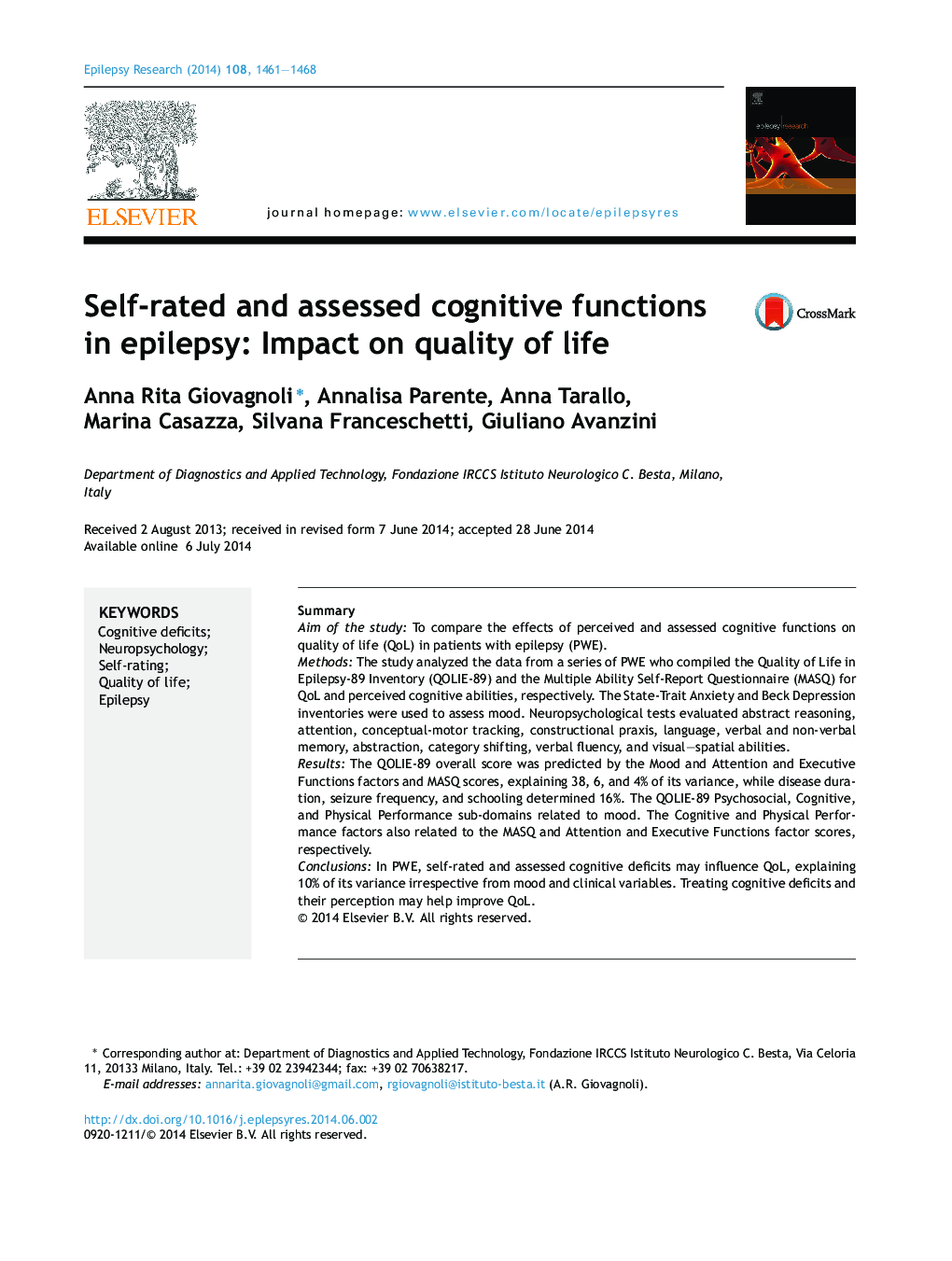| Article ID | Journal | Published Year | Pages | File Type |
|---|---|---|---|---|
| 3052029 | Epilepsy Research | 2014 | 8 Pages |
•Cognitive impairment contributes to predict quality of life in patients with epilepsy.•Self-rating and neuropsychological performances provide complementary information.•Cognitive deficits impact quality of life independent of mood and clinical variables.
SummaryAim of the studyTo compare the effects of perceived and assessed cognitive functions on quality of life (QoL) in patients with epilepsy (PWE).MethodsThe study analyzed the data from a series of PWE who compiled the Quality of Life in Epilepsy-89 Inventory (QOLIE-89) and the Multiple Ability Self-Report Questionnaire (MASQ) for QoL and perceived cognitive abilities, respectively. The State-Trait Anxiety and Beck Depression inventories were used to assess mood. Neuropsychological tests evaluated abstract reasoning, attention, conceptual-motor tracking, constructional praxis, language, verbal and non-verbal memory, abstraction, category shifting, verbal fluency, and visual–spatial abilities.ResultsThe QOLIE-89 overall score was predicted by the Mood and Attention and Executive Functions factors and MASQ scores, explaining 38, 6, and 4% of its variance, while disease duration, seizure frequency, and schooling determined 16%. The QOLIE-89 Psychosocial, Cognitive, and Physical Performance sub-domains related to mood. The Cognitive and Physical Performance factors also related to the MASQ and Attention and Executive Functions factor scores, respectively.ConclusionsIn PWE, self-rated and assessed cognitive deficits may influence QoL, explaining 10% of its variance irrespective from mood and clinical variables. Treating cognitive deficits and their perception may help improve QoL.
